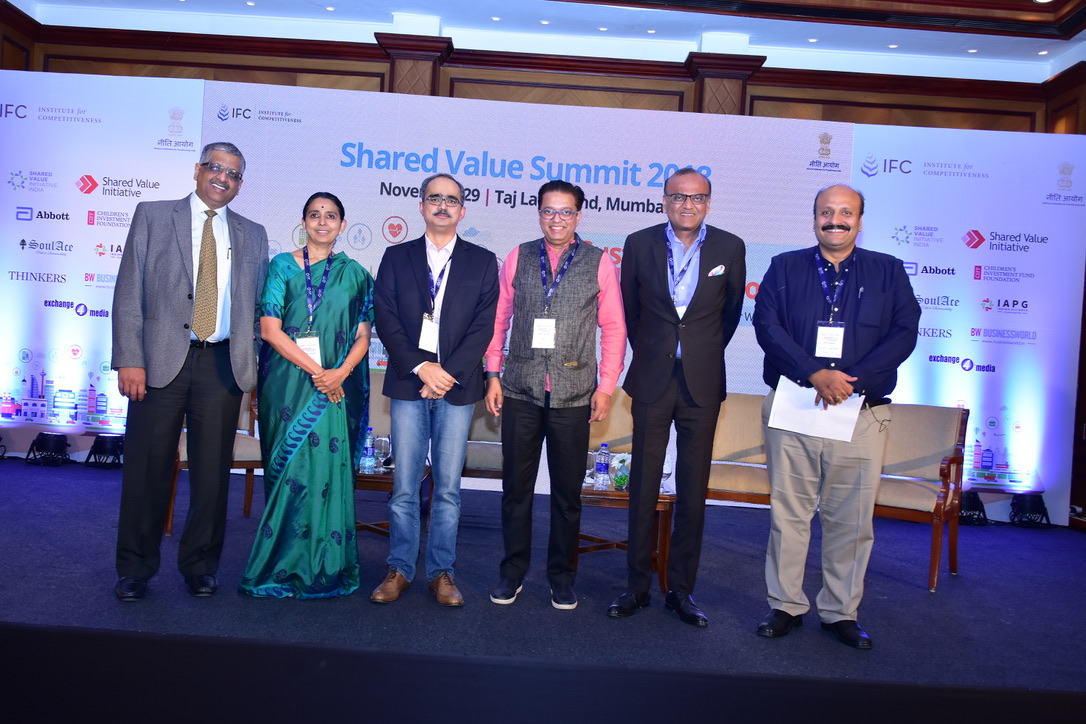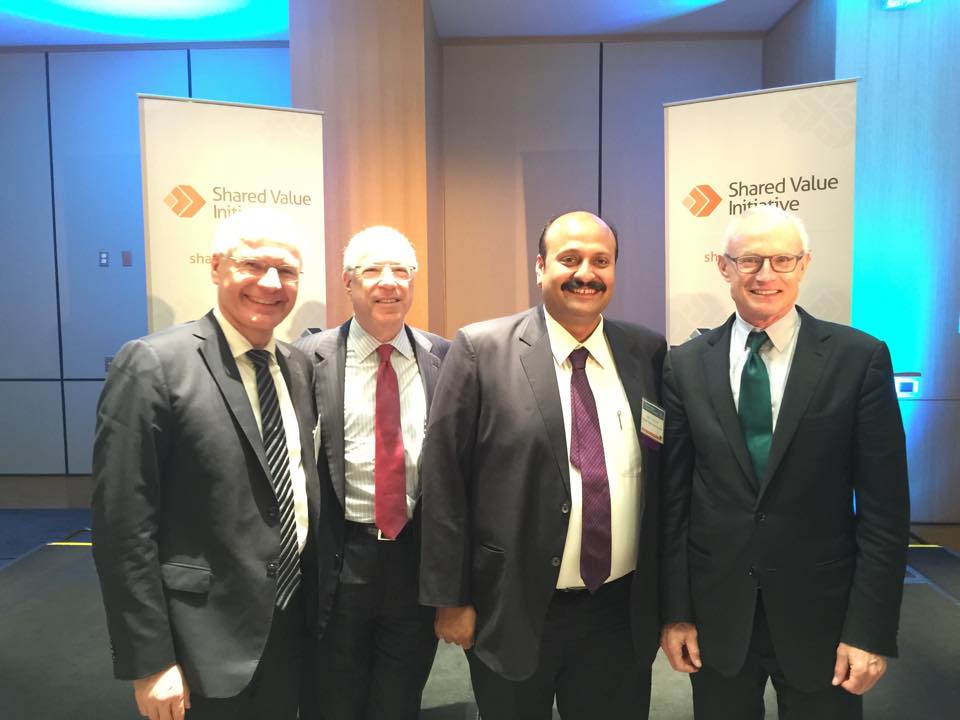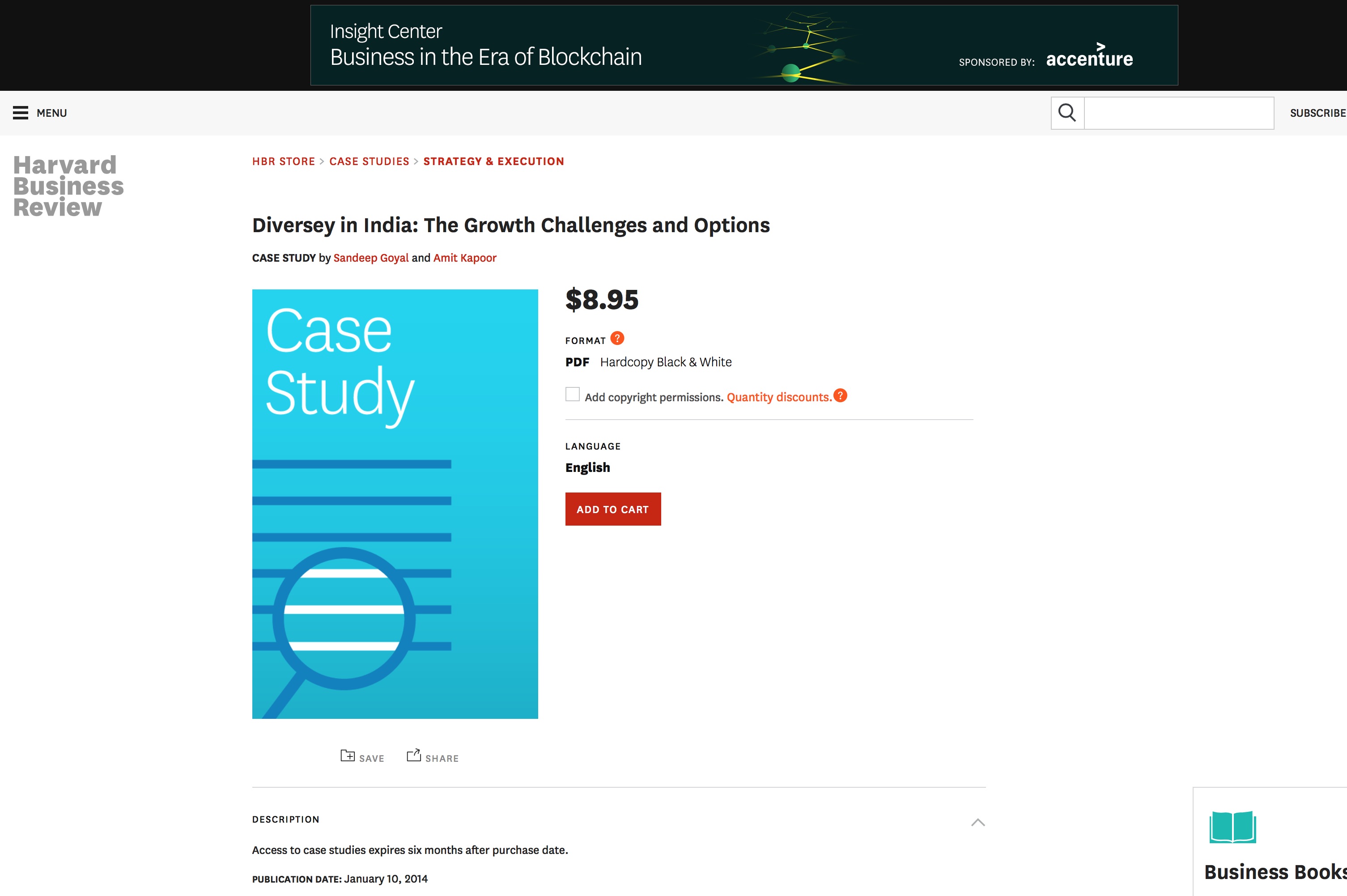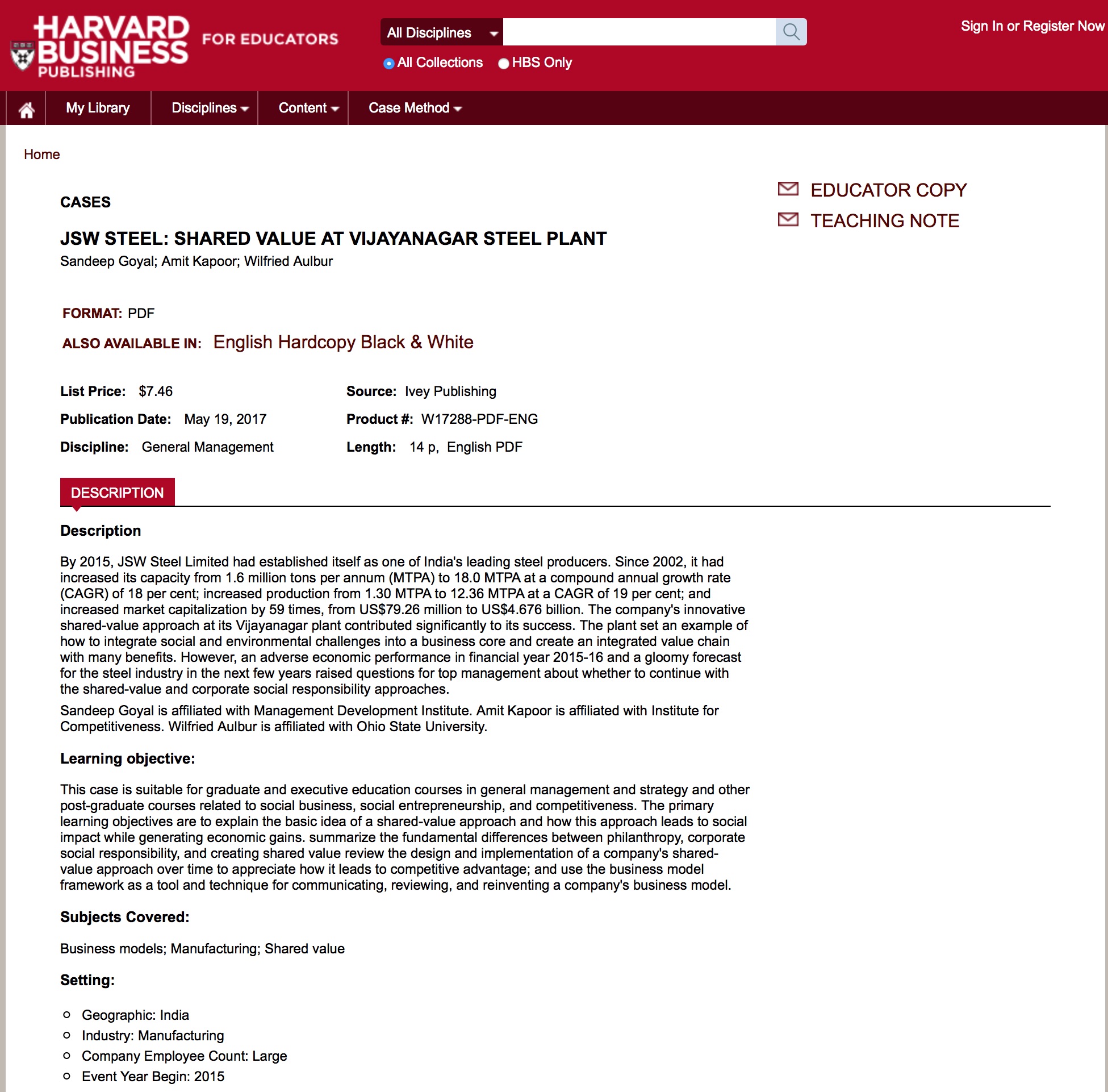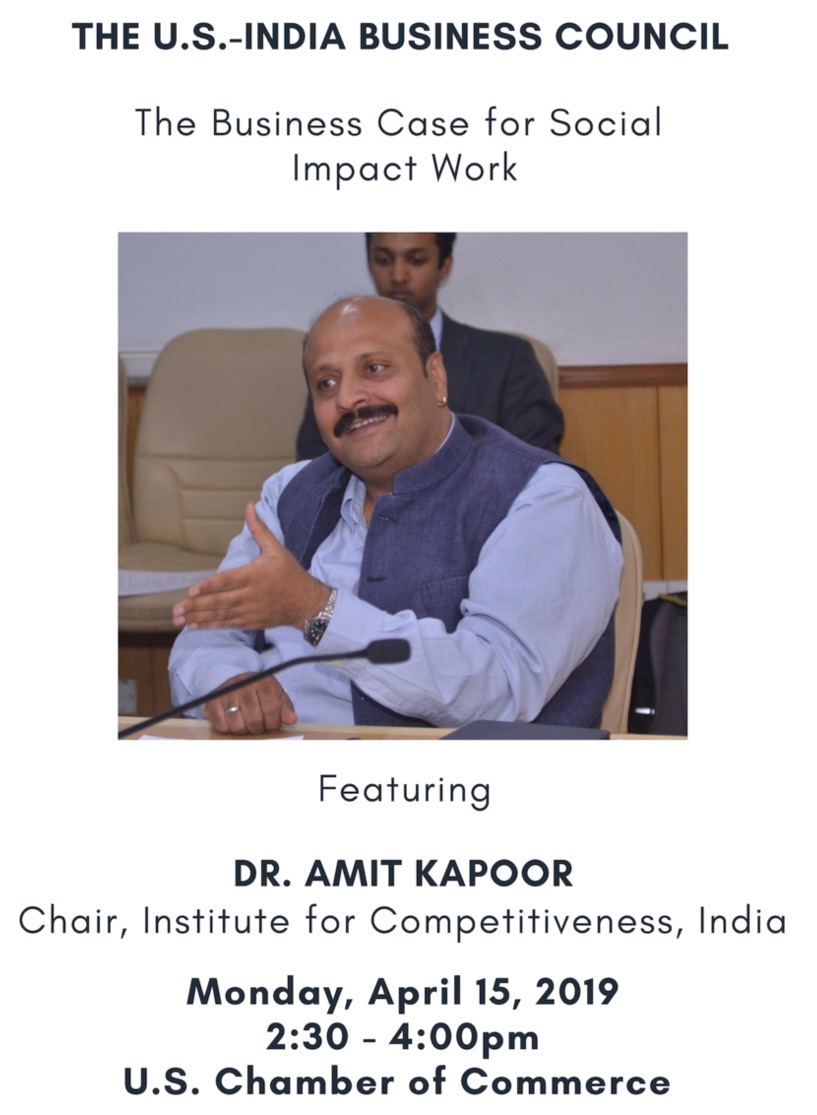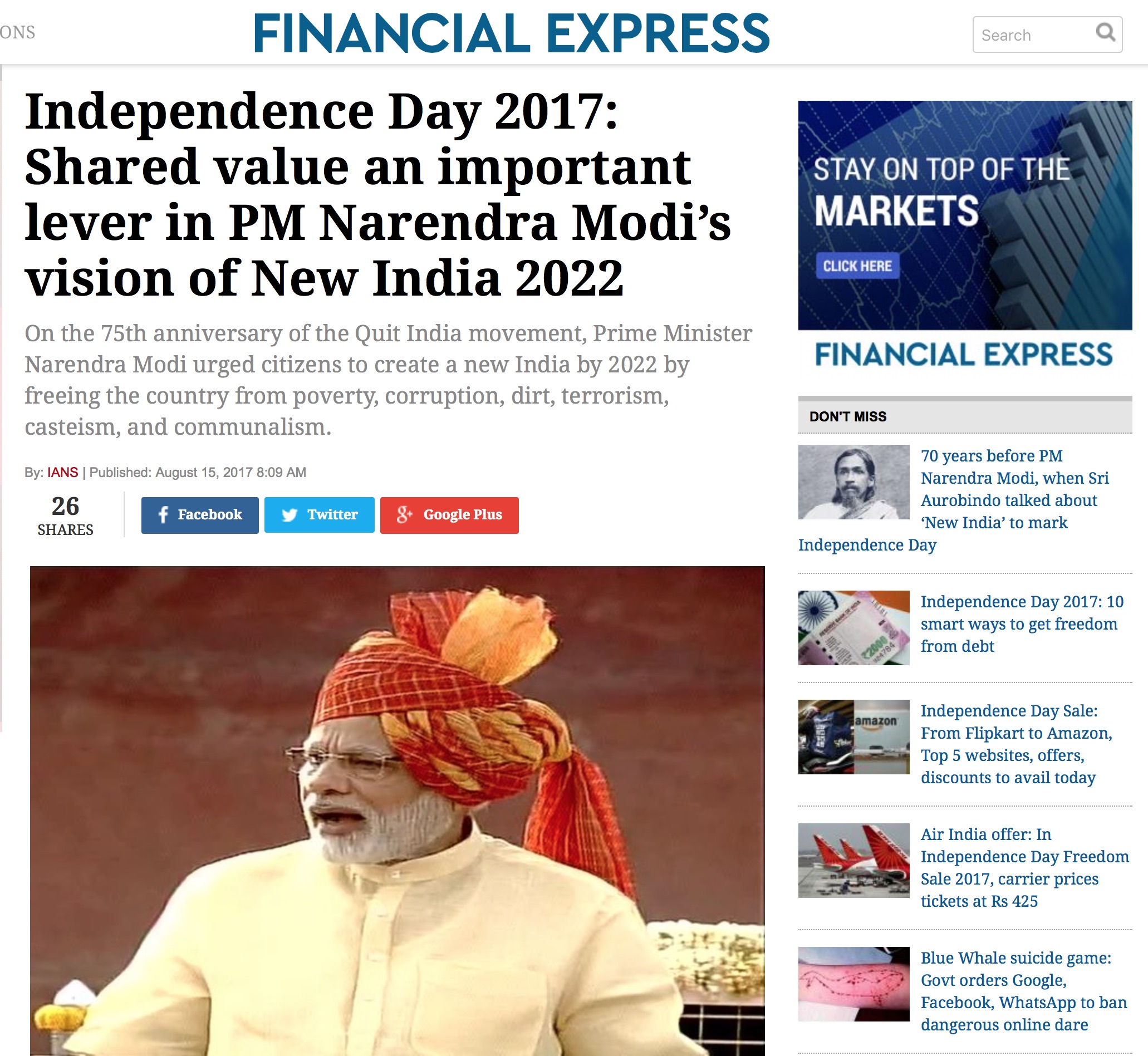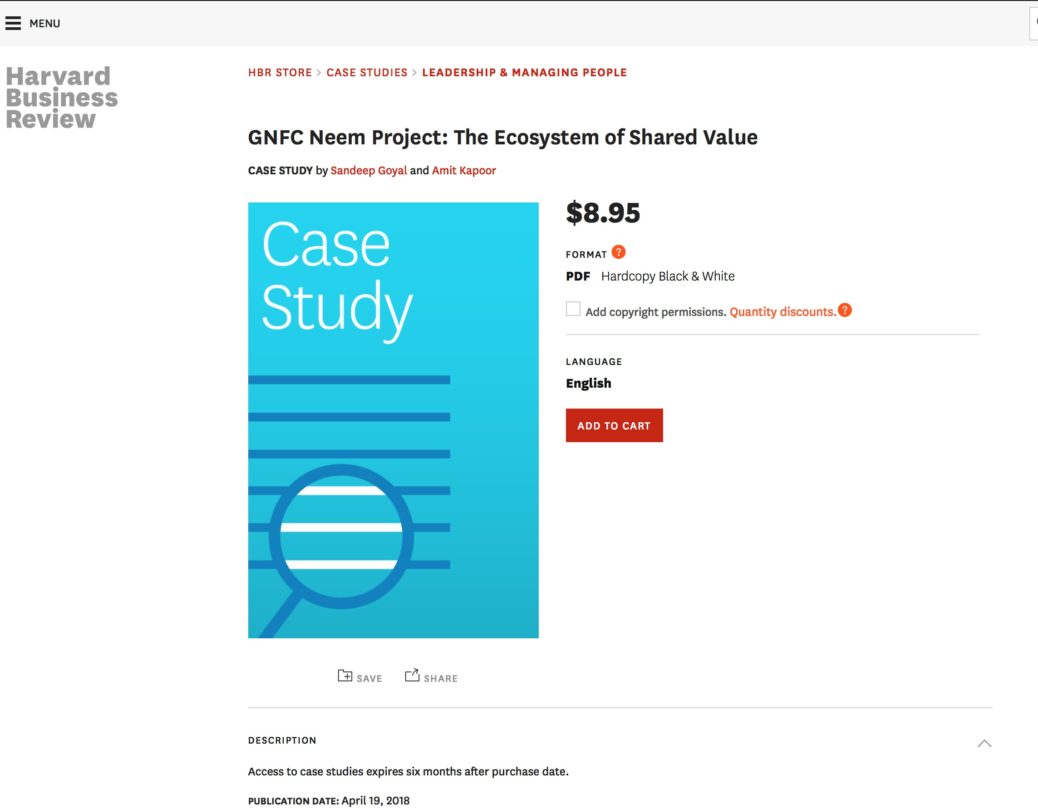
GNFC Neem Project: The Ecosystem of Shared Value (Harvard Business Publishing)
contact us at +91 124 437 6676 info@competitiveness.in

-
What is Shared Value Approach and Why it Matters?
amitkapoor, , Articles, India Council, Shared Value, 0
The global dynamics of business and society are undergoing a major transformation. There are three schools of thought which...
-
Role of Media and Information in Creating Shared Value
amitkapoor, , Shared Value, Speaking, 0
Dr. Amit Kapoor moderated a panel discussion on “Role of Media and Information in Creating Shared Value” at the...
-
Shared Value Initiative India launched in New York city
amitkapoor, , Articles, Press Release, Shared Value, 0
Shared Value Initiative India (SVII) was announced as a regional partner of the global Shared Value Initiative (www.sharedvalue.org) at the...
-
Diversey in India: The Growth Challenges and Options (Harvard Business Publishing)
amitkapoor, , Cases, 0
The case study was published in Harvard Business Publishing and authored by Amit Kapoor & Sandeep Goyal. To purchase...
-
JSW Steel: Shared Value at Vijayanagar Steel Plant (Harvard Business Publishing)
amitkapoor, , Cases, Shared Value, 0
By 2015, JSW Steel Limited had established itself as one of India’s leading steel producers. Since 2002, it had...
-
The Business Case for Social Impact Work
amitkapoor, , Shared Value, Social Progress, Speaking, 0
Dr. Amit Kapoor shared his views in a conversation with business executives and foundation leaders around the intersection of...
-
Michael E. Porter, Professor Harvard Business School coming to India in May, 2017
amitkapoor, , Porter Prize, Press Release, Press Release, Shared Value, Social Progress, 0
Source: Institute for Competitiveness New Delhi, Monday, May 1, 2017 12:00 PM Institute for Competitiveness, India is hosting Michael...
-
Shared Value an important lever in Prime Minister’s Vision of New India 2022
amitkapoor, , Active Voice, Articles, India Council, Shared Value, 0
On the 75th anniversary of the Quit India movement, The Prime Minister urged the citizens to create a new...


